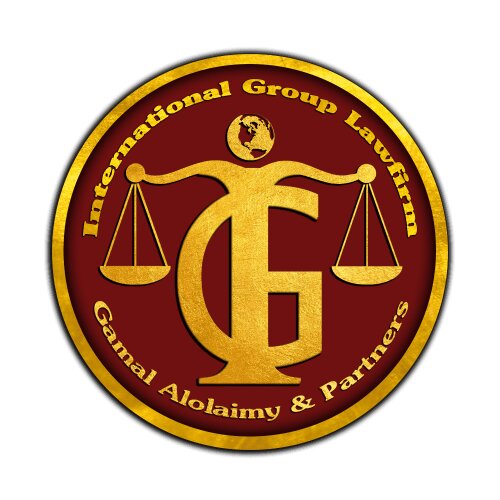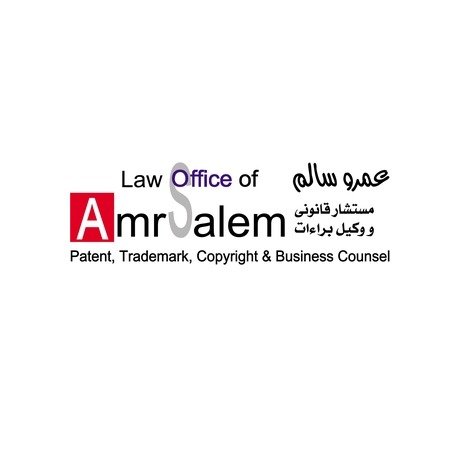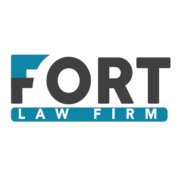Best Commercial Real Estate Lawyers in Egypt
Share your needs with us, get contacted by law firms.
Free. Takes 2 min.
Free Guide to Hiring a Real Estate Lawyer
Or refine your search by selecting a city:
List of the best lawyers in Egypt
About Commercial Real Estate Law in Egypt
Commercial real estate in Egypt is a dynamic and vital sector of the country's economy, involving properties used for business activities, including office spaces, retail outlets, hotels, and industrial spaces. The real estate market has been undergoing significant growth, driven by factors such as urbanization, population growth, and foreign investments. Understanding the legal framework governing commercial real estate is crucial for anyone involved in this sector, particularly due to unique local regulations and requirements.
Why You May Need a Lawyer
Engaging the services of a lawyer is advisable in various situations involving commercial real estate. These include:
- Drafting, reviewing, or negotiating lease agreements.
- Conducting due diligence before a property transaction.
- Handling disputes between landlords and tenants.
- Facilitating property acquisitions, mergers, or joint ventures.
- Navigating zoning and land use regulations.
- Resolving issues related to construction and development projects.
- Consulting on tax implications of real estate transactions.
Local Laws Overview
Commercial real estate law in Egypt is shaped by a mix of Islamic law, civil law influences, and modern legislative frameworks. Key aspects include:
- Registration and Titles: All properties must be registered with local authorities, ensuring clear title and ownership rights.
- Lease Agreements: Leases are generally governed under the Civil Code, with specific terms often negotiated between parties.
- Property Taxes: Commercial properties are subject to various taxes, including property tax and capital gains tax.
- Zoning Regulations: Zoning laws dictate how land can be used and often require compliance for development projects.
- Foreign Ownership: Restrictions may apply to foreign individuals or corporations, particularly regarding ownership near strategic areas.
Frequently Asked Questions
What documents are required for a commercial property transaction?
Typically, you'll need title deeds, property contracts, identification documents, and financial statements.
How long does it take to register a property in Egypt?
The registration process can take several weeks, depending on the complexity of the transaction and bureaucratic efficiency.
Are there restrictions on foreign investors purchasing commercial real estate?
Yes, foreign ownership may be restricted in certain areas, often requiring a local partner or government approval.
What taxes do I need to be aware of in commercial real estate deals?
Commercial property activities may incur property tax, VAT, and potential capital gains tax upon sale.
How is a commercial lease typically structured in Egypt?
Leases are usually term-based with specific provisions for renewal and rent adjustments, governed by mutual agreement and the Civil Code.
What are my options if a tenant defaults on a lease agreement?
Legal recourse includes pursuing eviction through the court system and claiming damages for outstanding obligations.
How can I ensure compliance with zoning regulations?
Consulting with a qualified real estate attorney or a planning officer can help ensure that your project meets legal requirements.
What kind of legal disputes are common in commercial real estate?
Common disputes include breach of contract, rent arrears, zoning violations, and easement disputes.
Can I appeal a zoning decision?
Yes, zoning decisions can be appealed through the appropriate governmental bodies or court system.
What is involved in due diligence for buying commercial property?
Due diligence typically involves reviewing legal titles, checking for encumbrances, property inspections, and verifying zoning permissions.
Additional Resources
For further assistance, consider these resources:
- The Real Estate Publicity Department - for property registration and title inquiries.
- Local Chambers of Commerce - providing guidance and support for business and property issues.
- Investment Authority of Egypt - offering resources for investors, including legal frameworks and market insights.
- Real Estate Development Chamber - for industry updates and networking opportunities.
Next Steps
If you require legal assistance in commercial real estate, consider taking the following steps:
- Identify your specific legal needs and gather relevant documents.
- Research and select a reputable law firm or attorney specializing in commercial real estate.
- Schedule a consultation to discuss your case and evaluate legal options.
- Ensure clear communication and document all agreements and advice received.
By engaging skilled legal counsel, you can navigate the complexities of the commercial real estate market confidently and effectively.
Lawzana helps you find the best lawyers and law firms in Egypt through a curated and pre-screened list of qualified legal professionals. Our platform offers rankings and detailed profiles of attorneys and law firms, allowing you to compare based on practice areas, including Commercial Real Estate, experience, and client feedback.
Each profile includes a description of the firm's areas of practice, client reviews, team members and partners, year of establishment, spoken languages, office locations, contact information, social media presence, and any published articles or resources. Most firms on our platform speak English and are experienced in both local and international legal matters.
Get a quote from top-rated law firms in Egypt — quickly, securely, and without unnecessary hassle.
Disclaimer:
The information provided on this page is for general informational purposes only and does not constitute legal advice. While we strive to ensure the accuracy and relevance of the content, legal information may change over time, and interpretations of the law can vary. You should always consult with a qualified legal professional for advice specific to your situation.
We disclaim all liability for actions taken or not taken based on the content of this page. If you believe any information is incorrect or outdated, please contact us, and we will review and update it where appropriate.
Browse commercial real estate law firms by city in Egypt
Refine your search by selecting a city.















